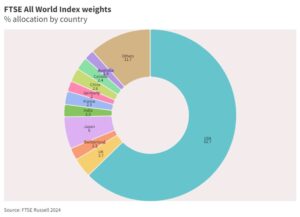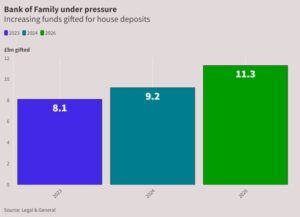
The focus of many sensible financial plans is to help build security, be it to pay off an outstanding mortgage or accumulate wealth to help provide a comfortable lifestyle in later life. An equally important element – and one that is often overlooked – is to consider the impact of death on a family’s finances. This is where protection policies can provide security and peace of mind.
Not everyone needs life insurance; however, if you are responsible for someone else’s financial security, either by virtue of salary or other income that would be lost in the event of death, or have caring responsibilities for a child (or indeed an older adult), it may well be sensible to review your existing protection arrangements, to see whether you have sufficient cover in place.
Review existing life cover
The most obvious reason for taking out life insurance is to cover an outstanding mortgage debt. Most policies taken out for this purpose are established on a Decreasing Term basis, whereby the amount of life cover provided falls by a set percentage each year to reflect the lower mortgage balance outstanding. If the mortgage has been established on an interest only basis, for example on a rental property, then Level cover – where the sum assured remains the same throughout the policy period – would be more appropriate.
Whilst holding life cover to settle an outstanding mortgage balance is obviously sound financial planning, a lump sum payment would do little to provide additional funds on an ongoing basis to cover day-to-day living costs and other expenditure for family members left behind. Although the burden of mortgage payments would be eased, the loss of earnings caused by the death of the main income provider could mean that surviving family members struggle to cover ongoing costs, in addition to other financial commitments, such as hobbies and leisure or further education expenses.
It is, therefore, sensible to review any existing policies in place to see what cover is already provided and look for gaps where additional protection could provide peace of mind. Conversely, we sometimes meet new clients who are paying premiums on policies that are surplus to their financial planning requirements, although we always recommend seeking independent advice when weighing up whether to cancel existing life cover.
There are a range of different products that offer life cover to help families protect their loved ones in the event of death. We will focus on two options, namely Death in Service and Family Income Benefit, which provide very different, but equally valuable, benefits.
Death in Service
We regularly meet with clients who are unsure whether their employer offers a Death in Service policy as part of their remuneration package. Whilst not mandatory, many employers provide Death in Service policies, as they are a cost-effective benefit and a way to attract and retain staff.
Death in Service is a valuable benefit, which is paid out to those who die whilst employed. Whilst having some similarities to a standard life insurance policy, instead of paying out a specific lump sum on death, the amount paid is usually a multiple of salary. For example, a scheme paying three times salary to an employee earning £50,000 per annum would provide cover of £150,000 in the event of death whilst employed.
Death in Service arrangements can vary depending on how the policies have been established. Schemes that register with HMRC fall under pensions legislation, whereas so-called “excepted” schemes fall under trust rules. Depending on your personal circumstances, a payment on death could impact other financial plans you have in place, such as existing pension savings, and it is therefore important to check how your Death in Service scheme has been established.
If the benefits under a Death in Service policy are paid to a trust, the trustees will determine who the benefits are paid to. It is therefore important to complete an Expression of Wish form, to let the trustees know who you would like to benefit from the policy. It is, however, important to note that the trustees have the final say on how benefits are distributed, although they will take any valid nomination into account when reaching their decision.
Family Income Benefit
Whilst most life policies are established to provide a lump sum on death, some are arranged to provide a regular income for a set period of time. So-called Family Income Benefit policies are designed to replace earnings or income that would have been generated, in the event that the policyholder dies, which provides surviving family members with an income to maintain their standard of living. The policy is established over a specific term, and in the event of a claim being made on the policy, the regular payments will be made for the remainder of the term. For example, if a policy was established for a 25-year term, and the policyholder died in the 15th year, the monthly benefit payments would continue to be paid for the 10 years remaining on the policy.
Benefits paid by a family income benefit policy can either be paid on a level basis (i.e. the monthly premium and benefit payments are fixed at the same amount for the life of the policy) or indexed, where the level of benefits, and monthly premium, are inflation linked. This can protect the real value of the cover provided, and the cost of living increases we have seen over recent years are a timely reminder of the importance of protecting future payments against inflation.
Carry out a protection audit
As part of our holistic approach to financial planning, our experienced advisers will look at your existing protection arrangements you hold to ensure that sufficient cover is in place. After all, no matter how much energy is devoted to making the right plans for long term saving, without adequate protection against death, the best laid plans can be derailed. Speak to one of our advisers who would be happy to review your existing arrangements, and provide recommendations to alter existing cover or establish new policies to ensure your family are protected in the event of death. As an independent firm, we can access providers from across the marketplace, to provide advice on the most appropriate solution.









